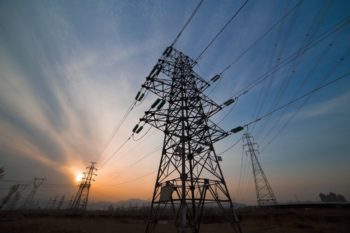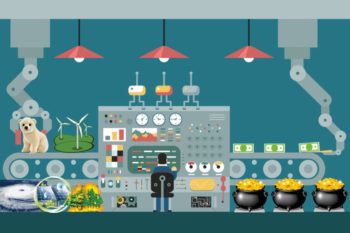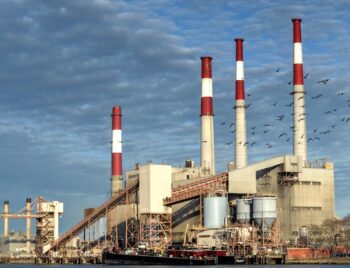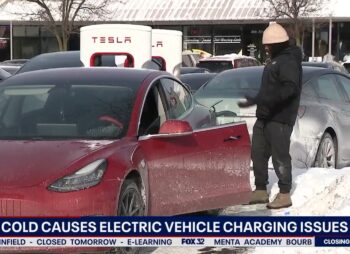
Washington, Arizona, Nevada, and Colorado all have global-warming ballot initiatives, each heavily financed by environmental activists.
New Mexico voters will decide whether to elect a powerful land commissioner who promises stiff curbs on emissions.
None of these will make any difference in the global climate. But they will cost their residents dearly.
In Washington, voters will decide whether to be the first state to impose a carbon tax. Initiative 1631 would slap a $15 tax on each ton of CO2 emissions starting in 2020. That would climb by $2 every year after that.
Tax On Everything
This tax will hit everything, from gasoline prices (up by as much as 59 cents a gallon) to electricity bills to everyday household goods.
That translates into hundreds of dollars a year for a typical household right out of the gate, with costs climbing to nearly $1,000 a year by 2035.
An analysis by the National Economic Research Associates also found that the tax would cut the state’s growth by 0.4% in the first two years.
Even more absurd than the tax hit, however, is the fact that the initiative includes numerous exemptions — such as on aluminum production and fuel bought by the government.
Talk about pointless. The U.N. says that the entire world would have to slap carbon taxes of up to $5,500 per ton to avoid a supposed climate-change catastrophe. Washington state’s action will only hurt Washington residents.
In other words, Washington’s tax amounts to nothing more than very expensive virtue-signaling.
Costly Renewable Mandates
Voters in both Arizona and Nevada, meanwhile, will decide whether to boost their mandates on renewable energy.
Both initiatives would force utilities to get half of their electricity from renewables like wind and solar by 2030 — less than 12 years from now.
As Stephen Moore explained in these pages recently, these renewable mandates are a punitive tax on the poor and middle class. Why? Because these mandates raise the cost of energy.
Moore notes that a Manhattan Institute study found that eight of the 10 states with the highest electric bills had renewable-energy mandates. “We are talking about hundreds and sometimes thousands of dollars of higher costs every year to homeowners,” he says.
And because energy costs represent a bigger share of the budgets of lower-income families, these hikes end up being regressive taxes. The impact on global warming? Less than negligible.
Limits On Fracking
Over in Colorado, voters will have the chance to severely limit the ability of oil and gas companies to extract energy in the state using the state-of-the-art drilling technology known as fracking.
Initiative 97 would ban oil and gas wells within 2,500 feet of homes, businesses and protected lands. That would effectively ban drilling in about 85% of the state.
This is a particularly ludicrous effort since fracking is responsible for a significant decrease in CO2 emissions over the past decade.
The fracking revolution opened vast supplies of natural gas to drillers, which sharply lowered natural gas prices.
That, in turn, made natural gas (which emits less CO2) more competitive than coal (which emits more). As utilities switched, CO2 emissions dropped.
Banning or limiting fracking will make such gains more difficult.
Cutting Methane Emissions
Meanwhile, New Mexico voters will be picking the next powerful public lands commissioner. As the New York Times notes, “at stake is a job with the authority to regulate the emissions of methane.”
The Democrat running for this job, Stephanie Garcia Richard, has promised to cut down on methane emissions.
Since the state owns nine million acres of land, a crackdown on methane leaks from oil and gas operations there has the potential to severely hamper the industry, along with the well-paying jobs that go with it.
But methane emissions in the state have been dropping on their own. That’s thanks to industry-driven advances in the technology. In 2017 alone, emissions dropped by more than 50%.
Forcing still deeper cuts in methane emissions will likely cost the industry — and the state’s economy — plenty, but will do nothing to change the global climate.
Voters in these states should know that while they’re deciding whether to impose these costs on themselves, the free market has been making huge inroads in cutting CO2 emissions, without any carbon taxes, mandates or Paris climate accords.
A Better Way
The Energy Information Administration reports that CO2 emissions from electric utilities have dropped so much in recent years that they’re now lower than they’ve been in more than 30 years.
EIA data show that the decline is due not only to fracking. It also the result of increased economic efficiency.
This increased efficiency, mind you, has little or nothing to do with federal regulations or mandates. It is the result of the relentless pressure a competitive free market puts on companies to wring out every ounce of waste and inefficiency.
Next week, voters in these five states will have a unique opportunity to send a loud message to the rest of the country. Namely, that they aren’t buying the global-warming hysteria.
We can only hope they do so.
Read more at IBD

















The science is settled, I am your esteemed Leader I will save you, turn over all
your earnings and assets to BigGov it knows everything.” If you hear a few lies and you totally buy in you’re in the Luddite, watermelon, hoax-monger, pre-fascist wannabes demographic.
How about s Ballot Measure to limit the amount of Hot Air meaning limiting Al Bore and Leonardo DiCaprio the staying at home and keeping their pie holes closed and cutting back on all that Hot Air